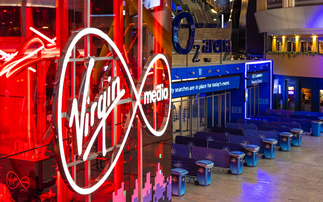10-year plan sets out how high profile bank intends to slash emissions generated by company cars, buildings, and boilers
TSB has today set out how it plans to achieve net zero emissions across its operations by 2030, unveiling a decarbonisation strategy that focuses on inking 'net zero partnerships' with key suppliers, boosting the efficiency of bank branches, and slashing staff car travel.
The 10-year plan focuses largely on Scope 1 and Scope 2 emissions, generated by the bank's direct operations and the purchase of heat and power.
The bulk of these emissions are generated by the use of fossil fuel gas to heat its buildings, the high street bank said, and as such it pledged to reduce the amount of gas it uses for heating, while taking steps to make its branches more energy efficient.
Emissions generated by company cars are another key focus of TSB's decarbonisation drive, with the firm pledging to deliver an all-electric vehicle fleet by 2026 while also encouraging employees to drive less once Covid-19 restrictions lift.
TSB is aiming to cap its car travel emissions at 50 per cent of pre-lockdown levels once the current round of restrictions are lifted, confirming that reduced travel activity caused by the pandemic saw emissions from company cars drop by 80 per cent.
The bank said the near-term reduction of operational emissions was an important step in the firm's journey towards delivering a net zero value chain by mid-century in line with recommendations from climate scientists. It has committed to clinching accreditation of its longer-term plan from the Science-based Targets Initiative over the coming two years.
TSB chief operating officer Suresh Viswanathan said it was important that TSB "get its own house in order" before turning its attention to its broader value chain emissions. "We know that reducing the impact on the environment is important to TSB customers and colleagues, and there's real enthusiasm in our business to share what we're doing," he said. "It's right that we start by getting our own house in order, measuring our impacts and targeting the right actions."
The bank has also brokered a number of 'net zero partnerships' with key suppliers - including computing giant IBM, engineering firm ISS, and marketing consultancy Communisis - in a bid to pool sustainability expertise and enhance its strategy.
In addition, the firm said work was already underway to reduce its indirect emissions, pointing to a new ethical investment service and the firm's decision to plant 8,000 trees in August to offset the climate impact of house moves facilitated by mortgages.
However, much more will need to be done to tackle the firm's wider Scope 3 emissions, which encompass all the emissions generated by all the bank's lending and investment activity, as well as all its suppliers' emissions.
Rain Newton-Smith, chief economist at the Confederation of British Industry (CBI), commended TSB for its decarbonisation drive.
"Companies that align to international standards and work with each other will make the most of the opportunities that come from cutting emissions and becoming more sustainable," she said. "It is very encouraging to see TSB commit to sign up to science-based targets and to facilitate a better understanding of best practice amongst its largest and smallest suppliers."
In related news, TSB's announcement came as Aviva's global asset management business today published a new strategy setting out how it intends to achieve net zero emissions across its £47.3bn real assets portfolio within two decades.
The plan sets out a number of actions Aviva Investors will take to clean up its portfolio between now and 2025 to kickstart the decarbonisation drive, including plans to invest £2.5bn in low carbon and renewable energy infrastructure and buildings; increase its renewable energy capacity to 1.5GW; originate £1bn in climate-transition focused loans; and reduce the carbon intensity of its real estate assets by 30 per cent and energy intensity by 10 per cent.
"The climate crisis is the single largest risk facing our society and economy, but it also represents great opportunity," said Aviva Investors CEO Mark Versey. "The real assets sector wields a great deal of investment influence and firepower and must quickly move on from high-level pledges to demonstrate meaningful action. The goals of our net zero commitment are ambitious and, most importantly, set out material proof-points that we can be measured against."








